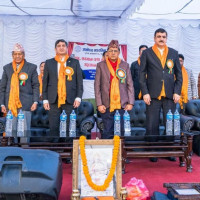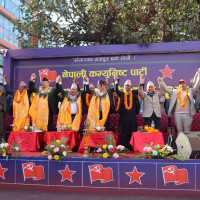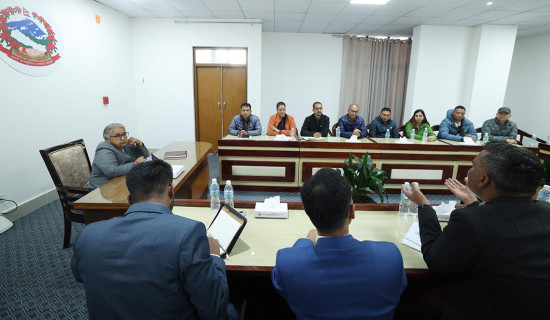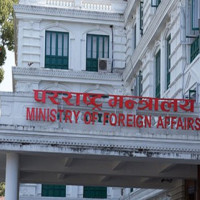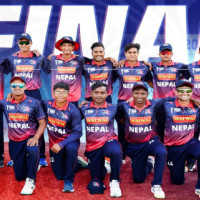- Monday, 1 December 2025
Election For Stability
At a time when the public, media, and civil society representatives are suspicious about whether the interim government led by Prime Minister Sushila Karki could hold the election to the House of Representatives (HoR) on the scheduled date of March 5, next year, President Ramchandra Paudel convened an all-party meeting to facilitate the election process at his office in Shital Niwas on Friday. The meeting, chaired by Prime Minister Karki and attended by all the political parties representing the erstwhile HoR, has now instilled the hope that the election could be organised in time. The suspicion was natural when the leadership of the UML had termed the formation of the interim government and dissolution of the House unconstitutional and said it would move to the court to reinstate the House, while a few Nepali Congress leaders were also expressing views against the dissolution. But now, when the leaders from these two parties attended the all-party meeting focused on the election, the suspension has, somehow, receded.
Also, the meeting served as a right platform for the interim government and the political parties to discuss the election and the issues associated with it, because the government, particularly Prime Minister Karki, had been drawing criticism for not holding talks with the political parties to create a conducive election environment in the country. The Shital Niwas meeting, thus, has been a key to bridging the political parties and the interim government. Moreover, the government and the political parties have formally started engaging in talks to hold the election and bring the country's politics back on the right track, because without holding the election, the country's derailed politics could not be fixed.
With the wounds of recent political turmoil yet to heal, the need to rebuild public confidence in democratic institutions cannot be overstated. Election is the only means to restore the democratic institution. This was rightly reflected by President Ramchandra Paudel in his statement that holding elections on time was essential to safeguard democratic values and ensure political stability. At the same time, he also called for unity among the political parties to create a peaceful, fair, and fear-free electoral environment, urging all political parties to focus their attention on the forthcoming election. Stating that elections are the only means to safeguard the country, its people, democracy, and the constitution, he also warned the political parties not to seek an alternative to elections. His warning came when the CPN-UML and a few Nepali Congress leaders were floating the idea of seeking the reinstatement of the dissolved parliament.
Likewise, Prime Minister Karki has assured that the government was fully aware of its responsibilities and was determined to ensure peace and security for the election. She also told the parties that organising an election could be impossible without the cooperation of the political parties and assured them that the government would manage all necessary arrangements to conduct the polls in a free, fair, and fearless manner. She also appealed to the parties to understand the causes of public dissatisfaction and to move forward in unity, embracing the changes demanded by the people.
In a democracy, power must return to the people-elected representatives at constitutionally mandated intervals. Any deviation from this principle puts the very foundation of democratic governance as well as national sovereignty at risk. Thus, the political parties now need to realise the urgency of fresh elections and engage themselves in making the election a success, because only elections can give a way out to the present political uncertainty.




